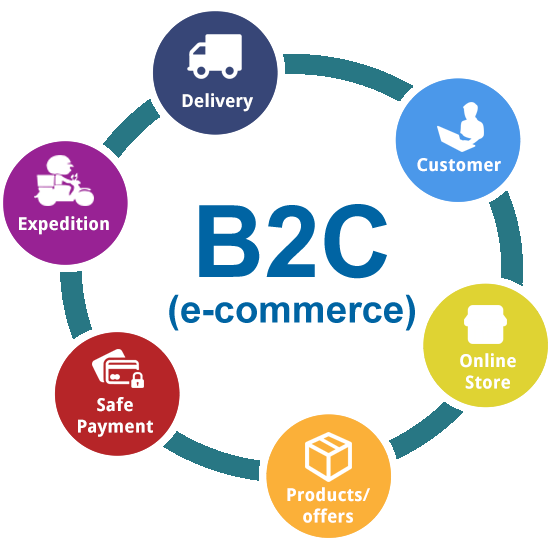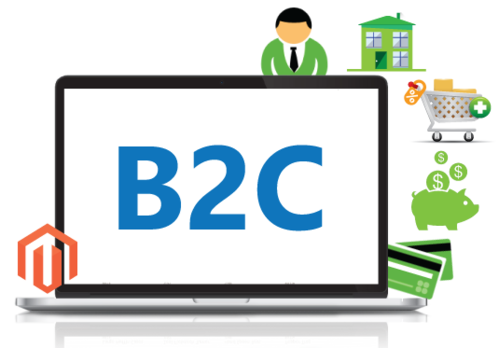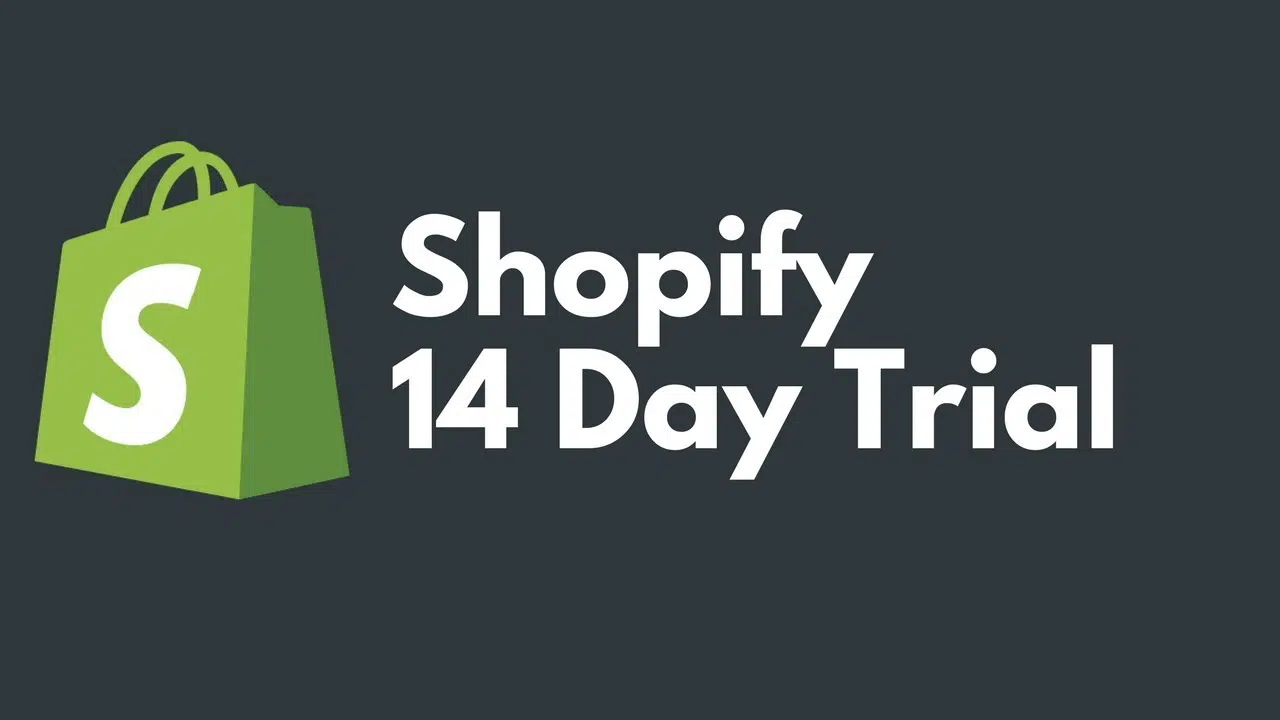- Introducing B2C
- Exploring the Different Types of B2C Businesses
- Analyzing the Benefits of B2C Marketing
- Delving into the Challenges of B2C Relationships
- Examining Strategies for Successful B2C Connections
- Exploring Key Metrics For Measuring B2C Performance
- B2C Storefronts vs Internet Retailers
- B2C vs Business-to-Business (B2B)
- Types of B2C companies
- FAQs
- Conclusion
At the forefront of digital marketing strategies, there’s one acronym that you must know – B2C. With increasingly tech-savvy customers and advancements in technology, businesses today need to leverage proven platforms such as B2C for success. But what does ‘B2C’ actually mean, and how can it help your business? In this blog post, we’ll explore the answer to those questions—as well as some ideas on how to use it—so you can maximize the potential reach of your brand.
Introducing B2C
B2C, an abbreviation for ‘Business-to-Consumer,’ represents the exchange of products, services, or information between businesses and end consumers. This term originated from the internet and e-commerce world, where businesses started to sell products and services directly to consumers via websites.
In the B2C model, businesses aim to attract individuals and foster a purchase decision, targeting a broad consumer base rather than other businesses. The B2C model is used extensively in various sectors, including, but not limited to, online retail, digital publishing, and financial services.
It enables businesses to reach consumers on a more personal level, using marketing strategies that appeal to individual needs, tastes, and preferences. For instance, in online retail, B2C often involves detailed product descriptions, intuitive website design, and personalized recommendations, all aimed at improving the customer’s shopping experience.
Furthermore, social media and search engine advertising play a crucial role in B2C marketing. They provide platforms for businesses to display their products or services to a wide range of audiences. These platforms also offer valuable customer data, which can be used to tailor marketing strategies and create highly targeted marketing campaigns.
In a nutshell, the B2C model is a powerful tool that can help businesses reach a larger audience, increase customer engagement, and ultimately boost sales.
Exploring the Different Types of B2C Businesses
B2C businesses can be broadly classified into five main types: direct sellers, online intermediaries, advertising-based, community-based, and fee-based.
Direct Sellers: These are the most common type of B2C business. They include online retailers who sell products directly to consumers. Examples are Amazon and eBay. These sellers have vast virtual storefronts and offer a wide variety of products, from electronics to clothing to furniture.
Online Intermediaries: These businesses act as a bridge between consumers and businesses, providing a platform for transactions to occur. They don’t own the products or services but facilitate their sale. An example is Expedia, a travel booking site that connects consumers with a multitude of airlines, hotels, and car rental services.
Advertising-Based: This B2C model involves a company providing a platform for content and then selling advertising space to other businesses. The consumers are not the buyers in this model; instead, they are the product. Businesses pay to advertise to the platform’s user base. A prime example is Facebook, which offers a free social networking service while selling targeted ad space to businesses.
Community-Based: These B2C businesses thrive on the involvement of a community. They generate revenue through selling goods or services that are of interest to the community they serve. Etsy, a marketplace for handmade and vintage goods, is a good example of an online communities-based B2C business.
Fee-Based: These are companies that charge a fee for their services or content. This could include subscription services like Netflix or software-as-a-service (SaaS) providers like Adobe, which charge a recurring fee for access to their software products.
Analyzing the Benefits of B2C Marketing

B2C marketing offers a multitude of benefits to businesses. One of the primary advantages is direct engagement with consumers. This approach allows companies to understand their clientele better, fostering robust relationships built on trust and loyalty. With direct communication, businesses can personalize their marketing efforts and tailor offerings to individual customer needs, improving customer satisfaction and, consequently, increasing revenue.
Another significant benefit is the ability to reach a broad audience. With the advent of digital marketing, geographical boundaries no longer limit businesses, allowing companies to engage with customers worldwide. This wide reach allows for increased brand visibility, contributing to the growth and expansion of the businesses.
Moreover, B2C marketing provides businesses with the opportunity to gather valuable data about their customers. This could include information on purchasing behavior and preferences, demographics, and feedback. These data are instrumental in making informed business decisions, refining marketing strategies, and improving products or services to meet customer demands better.
Lastly, B2C marketing allows for quick and easy transactions. The use of e-commerce platforms in B2C marketing has simplified the buying process, making it convenient for consumers to purchase products or services at their leisure. This ease of transactions enhances customer experience, encouraging repeat purchases and fostering customer loyalty.
Delving into the Challenges of B2C Relationships
Despite the many advantages, navigating B2C relationships also poses some challenges. One of the primary challenges is dealing with increased competition. Due to the ease of reaching consumers through digital means, businesses face stiff competition, making it essential to differentiate their offerings and maintain a unique brand identity.
Another challenge lies in managing customer expectations. Today’s customers are more informed and have higher expectations regarding product quality, customer service, and overall experience. Meeting these expectations consistently can be particularly demanding for small businesses.
Moreover, with the proliferation of data, businesses need to ensure they handle customer information responsibly. Data breaches can damage the trust built with the customers and negatively impact the brand’s reputation.
Additionally, the rapid evolution of technology necessitates businesses to stay updated with the latest trends and adapt their strategies accordingly. This need for constant evolution can be resource-intensive and challenging for businesses, especially small and medium enterprises with limited resources.
Examining Strategies for Successful B2C Connections
To build successful B2C connections, businesses must first understand their customer base and tailor their approach accordingly. This requires an in-depth knowledge of the customers’ preferences, behaviors, and needs. Businesses’ market research, customer surveys, and data analytics can provide valuable insights into consumer behavior that can guide business strategies.
Personalization is another key strategy for fostering strong B2C connections. By personalizing product offerings, marketing messages, and customer service, businesses can make their customers feel valued and understood. This personal touch can greatly enhance customer satisfaction and loyalty.
Online presence is crucial in the digital age. Businesses need to maintain an active and engaging online presence, leveraging various platforms such as websites, emails, social media, and blogs. An effective online presence not only facilitates interaction with existing customers but also helps attract potential customers.
Lastly, businesses must prioritize customer service. Excellent customer service can set a business apart from its competitors. By promptly and effectively addressing customer concerns, businesses can enhance customer trust and satisfaction. This requires a well-trained customer service team and the implementation of customer service tools and technologies.
Exploring Key Metrics For Measuring B2C Performance
Choosing the right metrics to measure B2C performance is critical for assessing the effectiveness of your strategies and making data-driven decisions. There are several key metrics that businesses can use to measure their B2C performance.
One of the most important metrics is Customer Acquisition Cost (CAC). This measures the cost of acquiring a new customer, including all the marketing and sales expenses associated with attracting that customer. Keeping the CAC low while increasing the value provided to the customer is a prime goal for most businesses.
The Lifetime Value (LTV) of a customer is another crucial metric. This represents the total revenue that a business can expect from a single customer throughout their relationship. A high LTV indicates a high level of customer loyalty and satisfaction, which is a positive sign for the business.
Customer Retention Rate (CRR) is a measure of how well a business retains its customers over a given period. A high CRR is a testament to customer satisfaction and the effectiveness of customer loyalty programs.
Net Promoter Score (NPS) is a tool used to gauge customer loyalty and satisfaction and is based on one simple question: “On a scale of 1-10, how likely is it that you would recommend our product or service to a friend or colleague?” This can give businesses a clear picture of how their customers perceive them.
B2C Storefronts vs Internet Retailers

B2C, or Business-to-Consumer, primarily refers to businesses that directly sell products or services to the end consumer. While there are many ways this can occur, two of the most common are through storefronts and internet retailers. Storefront businesses are physical locations where customers can come in, view the products, and make purchases directly.
This traditional business model allows for direct, face-to-face customer interactions. One significant advantage of storefronts is the instant gratification for customers, as they can immediately take possession of the item upon purchase. However, maintaining a physical location can be costly due to expenses like rent, utilities, and staff salaries.
On the other hand, Internet retailers operate entirely online, offering their products or services through a website or an app. They have the advantage of being accessible 24/7 from any location with internet access, which can greatly increase their potential customer base.
Moreover, the overhead costs are considerably lower than for physical storefronts because there’s no need for a prime location or a large sales process staff. However, they may face challenges like shipping costs and delays and the inability for customers to touch and feel the product before purchase.
Both storefronts and internet retailers have their own set of advantages and disadvantages. The choice between the two depends greatly on the nature of the product or service being sold, the target customer base, and the overall strategy of the business.
B2C vs Business-to-Business (B2B)
Business-to-consumer (B2C) and Business-to-Business (B2B) are two primary types of commercial transactions. While they may seem similar at first glance, they have distinct differences that significantly affect the way businesses operate, market, and sell their products or services. B2C, as the name suggests, involves businesses selling their products or services directly to consumers.
This model prioritizes customer relationships, personal engagement, and quick purchasing decisions. The marketing strategies in B2C often focus on eliciting emotional responses from consumers to encourage immediate purchases. Typical examples of B2C businesses include retailers, restaurants, and other companies that sell directly to the end consumer.
On the contrary, B2B involves transactions between two businesses. The purchase decisions in B2B are often more complex and involve multiple stakeholders. Marketing in B2B focuses more on logic, features of the product or service, and the return on investment (ROI).
B2B businesses typically have longer sales cycles due to the complexity of the transactions, the higher costs involved, and the greater need for establishing trust and credibility. Examples of B2B businesses include manufacturers selling to distributors, wholesalers selling to retailers, or service providers offering services to other businesses.
Types of B2C companies
B2C companies can be categorized into various types based on the nature of their transactions and the industry they operate in. E-commerce websites, such as Amazon and eBay, are prime examples of B2C companies in the digital space, offering an extensive range of products to consumers worldwide.
Brick-and-mortar retailers, like grocery stores or clothing outlets, also fall under the B2C model, serving customers in physical locations. Service-oriented businesses, such as hair salons or car repair services, are another type of B2C sales company offering professional services directly to the consumer.
These diverse examples underscore the breadth and adaptability of the business models across different industries and platforms.
Brick-and-mortar B2C Retailers
Brick-and-mortar B2C retailers represent the traditional retail sales models, where customers visit physical stores to purchase goods or services. This format allows for a personal, tactile shopping experience, offering consumers the ability to see, touch, and try products before purchasing. Examples include supermarkets, bookstores, and clothing boutiques.
Physical B2C Retailers
Physical B2C retailers encompass businesses that provide in-person services or goods. They can range from a local bakery auto repair service to a high-end jewelry store. The in-person interaction in this type of B2C business often promotes trust and allows for a high degree of personalization and customer service.
E-commerce B2C Online Retailers
E-commerce B2C online retailers operate on the digital front, providing a platform where consumers can browse and purchase products or services online. These platforms offer convenience and ease of access, with the added advantage of 24/7 availability. Examples include major online marketplaces such as Amazon and eBay, as well as specialized digital stores offering a specific line of products or services.
FAQs
What does B2C mean in the business world?
B2C, or Business-to-Consumer, refers to the transactional relationship between businesses and their end consumers. It includes the strategies and methodologies used by companies to sell products and services directly to individual customers.
How does B2C differ from B2B?
While B2C involves businesses selling products or services directly to individual consumers, B2B (Business-to-Business) involves businesses selling to other businesses. The marketing strategies, sales processes, and customer relationship models are different in both cases due to the nature of the buying entity.
What are examples of B2C businesses?
Examples of B2C businesses can range from local grocery stores, coffee shops, and online retailers like Amazon to service providers such as hair salons or auto repair shops. Essentially, any business that sells directly to consumers falls under this category.
How has e-commerce influenced the B2C model?
E-commerce has revolutionized the B2C model by introducing digital platforms for the sale of goods and services. It offers 24/7 shopping convenience, a global customer base, and a vast array of products at competitive prices.
What role does customer service play in B2C businesses?
Customer service is crucial in B2C businesses as it directly influences customer satisfaction, brand loyalty, and repeat purchases. Good customer service can range from providing personalized shopping experiences to handling customer complaints effectively and promptly.
Conclusion
I hope this document has helped you gain a better understanding of the meaning and scope of B2C companies. From traditional brick-and-mortar retailers to online e-commerce platforms, B2C businesses play a significant role in our daily lives as individual consumers. As technology continues to evolve, we can expect to see even more innovative and diverse forms of B2C companies emerging in the future, catering to the ever-changing needs and preferences of customers.










